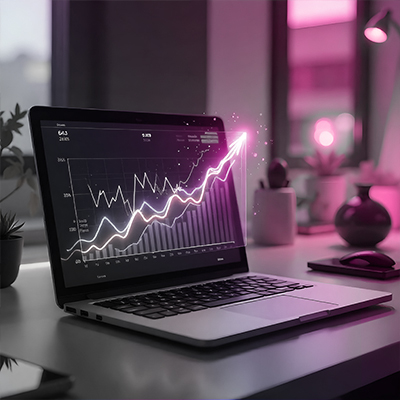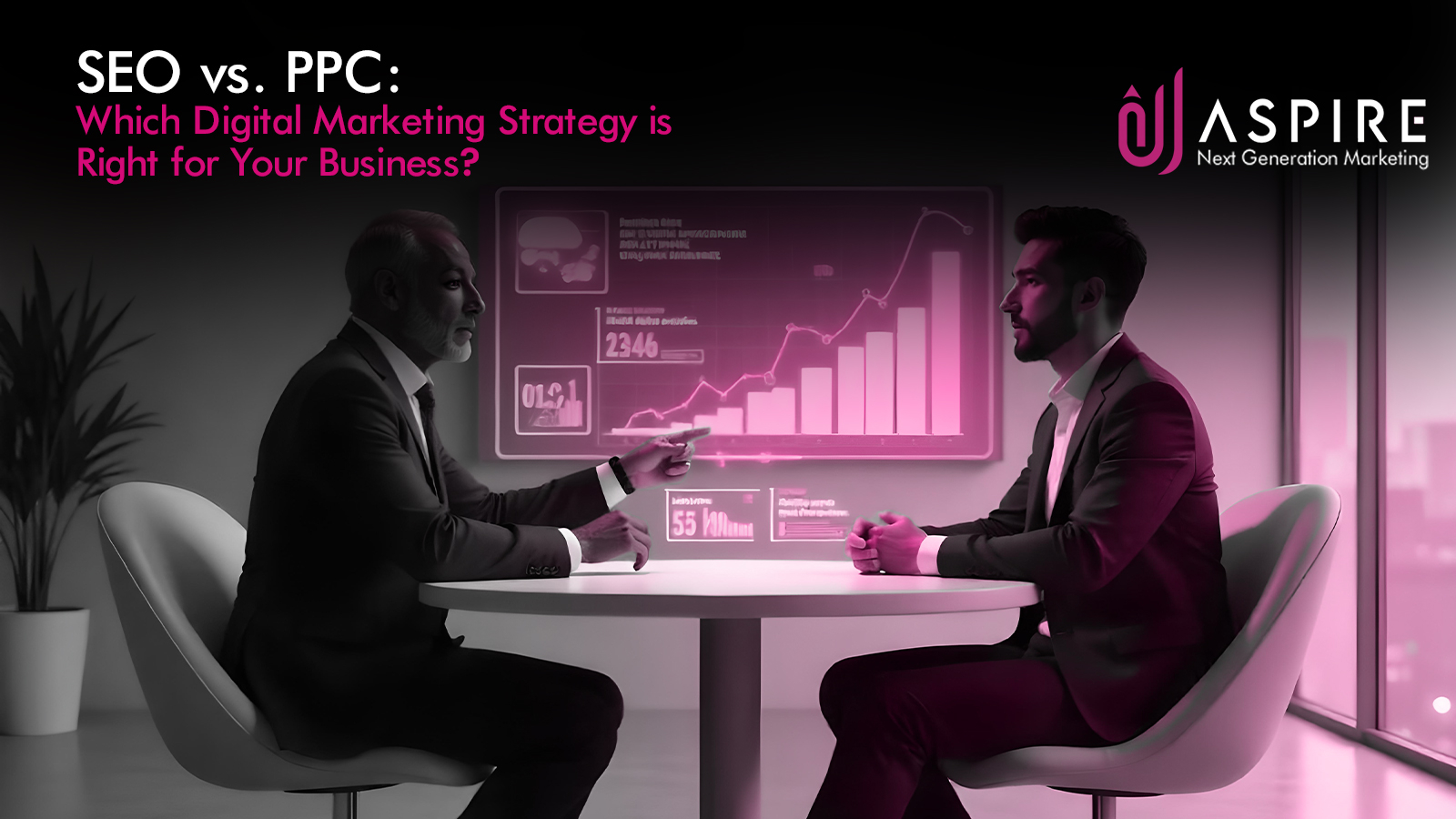All business folks or marketers have heard these terms Search Engine Optimization and (Pay-Per-Click). Both are powerful digital marketing strategies that will have traffic running around to your website converting in no time. However, with all the available options, it can take time to decide which approach will work for your company.
In this blog, we will discuss the best digital marketing strategy that helps you in SEO & PPC and the Difference Between SEO & PPC & how to choose. If you´re at a loss on how to do that because you´re new to the world of digital, or because quite simply you just want to step it up a notch, gaining an understanding of the two most potent tactics will assist you in assembling the perfect digital marketing plan to achieve your company goals.
Table of Contents
Understanding SEO and PPC
What is SEO?
SEO stands for Search Engine Optimization it is optimizing your website so that it appears higher up the list of results for an organic search in Google and similar sites. SEO drives traffic to your site without directing you which means the objective of SEO is to better place your site. If executed properly, SEO will boost your website traffic via applicable search phrases.
Types of SEO:
- On-page SEO: This is where you optimise the content, images, meta descriptions, and other elements on your website so that search engines can identify and crawl them easily.
- Off-page SEO: This is about link building and improving the authority and reputation of your site through signals from outside your site itself.
- Technical SEO: This is related to your site backend like improving site speed to mobile-friendly and data that search engines crawl easily.
SEO takes time to show results, but businesses use digital marketing strategy it can be a highly effective strategy for long-term growth.
What is PPC?
PPC is a paid way of advertising. A tech or a business pays when someone clicks on one of its ads. This is the most popular way to bid on keywords and show ads above search results. The only major difference between PPC and SEO is that the clicks from SEO are free, whereas you have to pay for each click with PPC. This is a very good digital marketing strategy.
Many businesses use different digital marketing strategies compared to SEO, PPC makes targeting more specific by showing ads to different kinds of people based on their demographic, location, or interests. The moment you stop paying for your ads, they will disappear.
Differences Between SEO and PPC
what SEO and PPC are, now let us explore the differences between the two strategies. Whether your business needs SEO or PPC depends on your goals, budget, and timelines. Let’s break it down

Cost Structure
- SEO: SEO in turn is a lot of time and work Though you will need to spend money to hire an SEO expert or to buy SEO tools, the long-term costs tend to be lower than PPC. When you reach high positions you do not pay per click.
- PPC: On the other hand, is a cost-based advertising method in the digital marketing world. With this ad type, you pay every time on click on your ad. Depending on which keywords you choose, the cost-per-click can vary. The moment you stop running ads, you disappear.
Time to See Results
- SEO: SEO is a long-term digital marketing strategy. Nuff said; that organic search traffic can sometimes take months before it starts rolling in. But once you rank highly, it is easy to stay in front of your eyes and do well long-term.
- PPC: Results of PPC are fast and you can see them almost instantly. You will instantly start getting traffic to your site, soon after your ad goes live. That is why PPC is a best solution for businesses that need immediate outcomes or ones looking to run a campaign or product testing.
Sustainability
- SEO: The greatest digital marketing strategy about SEO is once you get your site ranking for your keywords it can now deliver you traffic indefinitely without any cost. But you need to keep doing so to continue holding those rankings and adjust the algorithm changes.
- PPC: PPC cannot last for the long run. Your Ads Disappear from Search results the moment you stop paying. Therefore unless you have the budget to run your PPC campaigns forever, this makes PPC a more short-term solution.
Targeting and Reach
- SEO: SEO works to build visibility for your users who are actively looking for the subject matter, the products, or the services that you provide. While it may take time to establish authority and be in the running for competitive keywords, once you do, your site opens up to a wider audience.
- PPC: The strength of PPC lies in its precision targeting; you can target based on keywords, geolocation, and even specific times of the day or demographics (ex: age, gender, interests). PPC is also ideal if you have an extremely niche audience you want to reach or want to get your feet wet in testing different target markets.
Trust and Credibility
SEO: Organic search results appear to be more popular in the world of digital marketing strategy among users than paid ads. Organic is perceived as being more trustworthy as it appears based on relevance and not based on money. This is why organic ranking URLs have perceived expertise.
PPC: As much as PPC ads bring quick traffic, people usually do not see organic results as credible. That said, when used right, PPC can remain a relatively quick way to gain quality traffic to your site.
When to Choose SEO
It makes SEO a perfect fit for businesses seeking long-term sustainable growth. Following are situations in which SEO may make sense as the best digital marketing strategy for you and your company:

1. You Want Long-Term Growth
SEO is perfect for companies who wish to establish a long-term, sustainable presence in search results. SEO is going to help you visibility over some time if you are not in a hurry to see traffic right now and believe in long-term success.
2. You Have a Limited Budget
If the budget is tight for marketing and you are looking for ways to stretch your dollars, then SEO may be the way to go. SEO always has some costs (like content writing, SEO tools, and consulting costs) but at least it does not need a continuous outflow of money, like in PPC. After securing high positions, you can retain it indefinitely, without any additional expenses.
3. Why You Have Good Content & Experience
SEO is a great digital marketing strategy if your business has much content, expertise, or resources, that can convert into valuable informational content for your audience. This is the most important reason, search engines tend to reward quality content and after writing useful, informative articles, guides, or blog posts over some time, you can get organic traffic.
When to Choose PPC
PPC is ideal when you want instant visibility, are looking to launch a new product, or need to target specific demographics.

1. You Need Quick Results
When you have a short timeline and need instant visibility for your new product, service, or campaign, then PPC is the best digital marketing strategy you can bet. When you use PPC for digital marketing strategy, you will get clicks and leads as soon as your campaign goes live. This can be especially helpful for time-sensitive promotions.
2. You Want to Experiment with Keywords and Audiences
When you aren’t sure which keywords will drive the highest traffic or what audience segment will respond best. Then PPC you quickly test a variety of combinations. Let us enhance your digital marketing strategy and improve your strategy with real data.
3. You Need to Target a Specific Audience
Allows for Precise Targeting: PPC provides so many targeting possibilities such as location, device, language, demographics, etc. PPC is also an amazing way to reach the target audience and put your product in front of them.
SEO and PPC Combined Strategy
Although there are pros of either SEO or PPC, the best digital marketing strategy for many businesses is still using them together. A more effective marketing strategy can be created by implementing both approaches.
1. Increase Visibility and Reach
Using both SEO and PPC for digital marketing strategy will ensure your website ranks for high-volume terms in both organic search and paid search results. The more visible you are, the higher the probability of getting traffic, ultimately allowing you to capture clicks from a larger pool of people.
2. Data Sharing for Optimization
PPC campaigns can help us know with specific data what keywords bring us traffic and generate conversions. Using this data can plug the gaps in your SEO strategy and identify keywords that are doing well that can be targeted organic. Just like that, if you rank organically for specific keywords, you can run PPC campaigns around those terms and increase your conversions.
3. Cover All Stages of the Customer Journey
Users who use SEO frequently do research, whereas users who use PPC are ready to buy. And this digital marketing strategy combining both tactics lets you cover the entire customer lifecycle, from awareness to conversion.
Conclusion
The most effective digital marketing strategy for many businesses won’t be SEO vs. PPC at all. Rather, they’ll find that the best way to do it is to integrate both into a unified front. Using SEO for long-term organic traffic and PPC for immediate visibility, both digital marketing strategies can dominate search results and tap into a larger audience. This integrated approach enables your business to remain competitive, deliver short- and long-term results, and truly differentiate yourself in the digital landscape.
Whether your business is small, or larger than life, seeking to marry SEO and PPC is a great approach to optimize your online presence. Use the right combination of these and your business will flourish. All we can say at Aspire Digital Media this is the most balanced formula you need to go for if you wish to become a star in the digital world.
Read more: How Meta Platforms Can Accelerate Your Business Growth
FAQ
What are the major differences between SEO and PPC?
The difference between SEO and PPC can be summed up in terms of cost, spinning speed, and sustainability. SEO is an organic long-term play and PPC is a paid ad model that offers instant (but not free) results, a vague overhead with no ROI after a certain point; both offer instant solutions and long-term solutions. SEO gives long-lasting traffic and PPC provides instant traffic.
Is it possible to implement SEO and PPC together?
Yes, the combination of SEO and PPC is often the optimal digital marketing strategy. With both, you can rule the search engine results pages, obtain valuable data for optimization, and boost visibility on multiple channels.
Which is the better strategy for small businesses?
The ideal digital marketing strategy for small businesses varies depending on the budget and goals. PPC, on the other hand, provides immediate results, whilst SEO is a budget-friendly, longer-term game-changer. A mix of both works well for many small businesses.

